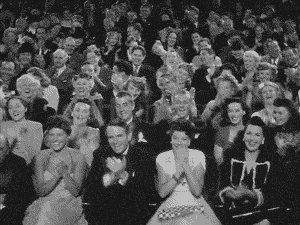http://wordofthenerdonline.com/2015/11/star-trek-fans-need-face-reality-cbss-new-trek-series/
As much as we love and revere Trek in our hearts, it is a commodity owned by CBS. It is a product that is intended to make money. As such, when marketing the series they can and will charge what the market will bear. Whether that’s by selling advertisements or charging fans directly for the streaming service, CBS is trying to run a business. They know that by featuring the series on CBS ALL-ACCESS that millions of fans will pay to watch it. This is a given. It’s just good business. To be completely honest, $5.99 per month seems to be a more than fair price to watch new Trek.


 How long have I been saying this? Bravo
How long have I been saying this? Bravo

